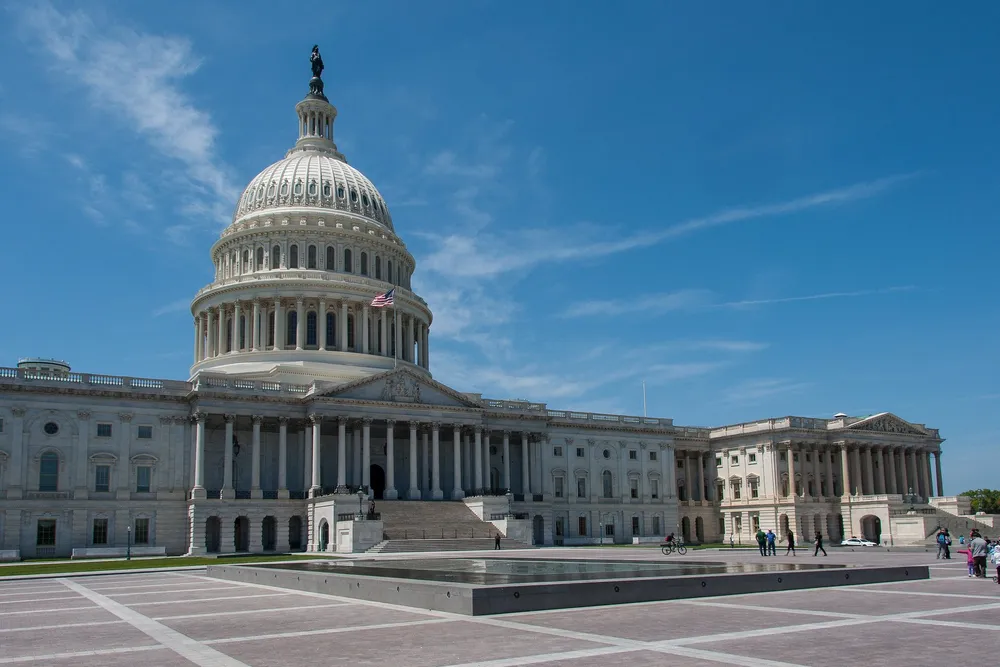Senate axes US wind tax but keeps fast phaseout of subsidies
Industry not out of the woods as some party lawmakers in lower House want even more accelerated step down of tax credits

The US Senate on Tuesday narrowly passed President Donald Trump’s massive domestic policy bill, removing a controversial proposed new tax on future wind and solar projects, while rapidly phasing out federal subsidies for both technologies by 2027.
Wind-related stocks rallied in New York on removal of the excise tax. NextEra Energy, the nation’s leading wind energy developer, closed up 5.2%, and rival AES rose 2.3%.
In his capacity as president of the Senate, Vice President JD Vance cast the deciding vote to break a 50-50 deadlock. Three Republicans joined 47 Democrats and independents who caucus with them in opposition.
The legislation - One Big Beautiful Bill Act - now goes to the House of Representatives, where passage is uncertain. Republicans, who are divided over the Senate legislation, hold a thin 220-213 majority in the 435-seat chamber. Three seats are vacant.
The bill would require projects to begin construction within one year of it becoming law, giving them until as late as 2030 (four-year safe harbour) to qualify for the tax credits.
The House version of the bill passed in May required projects to begin construction 60 days after Trump signed it into law for eligibility at full value, and then placed in service by the end of 2028.
Wind developers had warned that the short House eligibility period would be difficult to meet for many projects given lengthy US processes for permitting and interconnection. Presently, they can qualify for tax credits when “placed in service.”
The Inflation Reduction Act (IRA), former President Joe Biden's landmark climate law, would begin to step down the credits in 2032 over four years.
However, this trigger is pegged to the US lowering power sector emissions to 25% of 2022 levels. As this would be difficult to achieve, the credits could remain in place for numerous additional years.
Not affected are projects that were that were under construction by the end of 2024. They will still qualify for tax credits at 100% value if completed within four years after the year construction began. Offshore wind arrays and projects on federal land have 10 years to be finished.
The bill also mirrors the House version in ending manufacturing tax credits for wind energy components at the end of 2027.
Senate Republicans were thought to be more supportive for wind and solar than their House counterparts. This proved questionable after they stunned both industries by quietly inserting a provision that would have imposed an excise tax on projects completed after 2027 that did not meet complex restrictions on components and materials from China.
While the US wind industry is less reliant than solar on China, many of the permanent magnets in turbines used to create the magnetic field necessary to generate electricity contain rare earth materials processed and refined in China.
The excise tax would have applied to all projects, even if they did not claim federal tax credits, and based on how much Chinese content would surpass limits defined in the bill. After determining this amount, it would then be calculated as a percentage of a project’s cost for all manufactured components.
Clean energy trade groups were critical of the Senate bill.
Jason Grumet, CEO of the American Clean Power Association, called it a "step backward for American energy policy."
“With energy demand skyrocketing, we must work as a nation to maximize all domestic energy resources," he said. "While it was expected that this legislation would shift the direction of U.S. energy policy, we can’t afford to pick winners and losers when it comes to reliable, American-made energy. We need all of it— and we need it fast."
Oceantic Network CEO Liz Burdock said the Senate only marginally improved the House version, asserting it accepted "a bill that still hampers needed energy generation, depresses job creation, and raises electricity prices for American consumers."
(Copyright)